Boethius
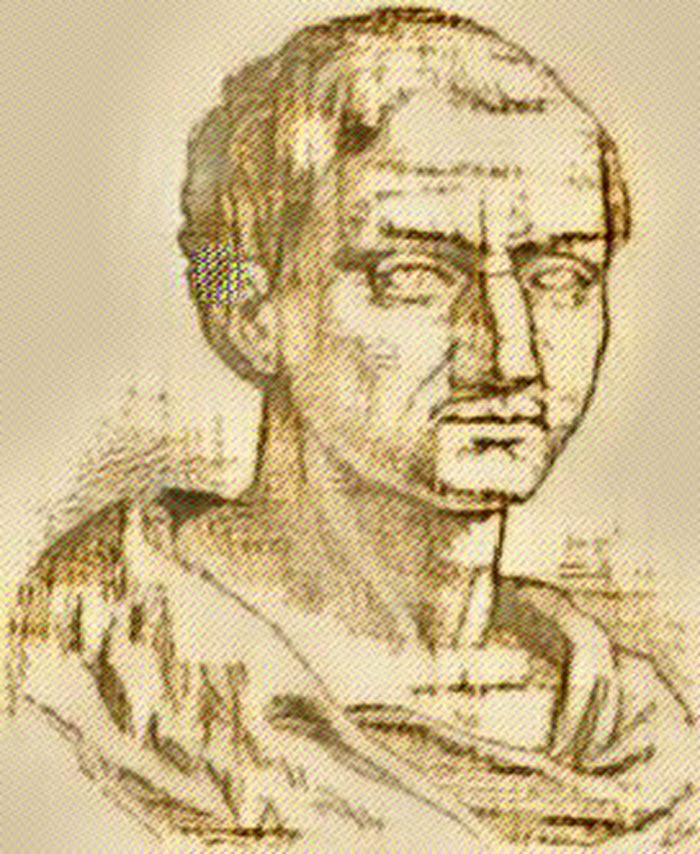
Boethius, or Boetius, (full name Anicius Manlius Torquatus Severinus Boethius) was a Roman philosopher and statesman. He was born in Rome, after the fall of the Roman Empire in 475 A. D. He was liberally educated and became a became a good Greek scholar, teaching philosophy and logic. He was chosen Consul in 510, and gained the confidence of Theodoric, King of the Goths, who reigned at Rome. The Gothic King later appointed Boethius magister officiorum in his court. In these days shortly after the end of the Roman Empire, the occupiers mainatined many of the forms of public office that had existed under the Roman Emperors, thereby claiming legitimacy as the rightful successors of the Roman state.
Boethius's political influence was exerted for the benefit of the country, but his probity and virtues provoked the enmity of powerful courtiers whose corrupt or oppressive conduct he had opposed. He was accused of treasonable designs, was confined in prison, and finally executed by the sword by order of Theodoric in 525 A. D.
Whether he was a Christian or not is a matter of uncertainty. He was considered such in the Middle Ages, and the Bollandists gave him the position of a saint, and his works are included in Migne’s edition of the Latin ecclesiastical writers (vols. lxiii., lxiv.). Several theological tracts are attributed to him, and were included in the Leyden edition (1671) of his Consolation of Philosophy. But there is a predominance of argument in favor of the opinion that he was not, in any proper sense, a Christian, and that the tract on the Trinity was from another hand, probably from a monk of the same name, although Peiper maintains that it was a work of the early years of Boethius.

Boethius holds a place in the history of scholastic philosophy from the fact that a passage from his commentary on the Isagoge of Porphyry gave rise to the long-continued discussions between the Realists and the Nominalists. While he was in prison he wrote, partly in verse, De Consolatione Philosophiae (On the Consolation of Philosophy), which is his greatest work, and was very popular in the Middle Ages. It was translated into Anglo-Saxon by Alfred the Great and into Middle English by Chaucer. It contains no allusions to Christianity — a fact which can hardly be reconciled with the hypothesis of his being a Christian, considering the circumstances under which it was written. In fact the Consolation of Philosophy is best classified as a work of neo-Platonism and a pagan revival.
Canterbury Tale Summaries
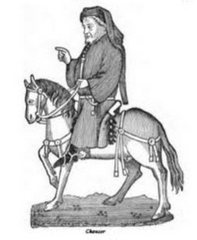
Geoffrey Chaucer
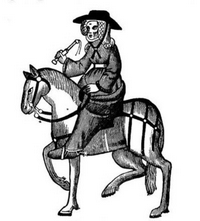
The Wife of Bath's Tale

The Miller's Tale

The Shipman's Tale
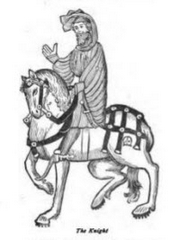
The Knight's Tale

The Summoner's Tale
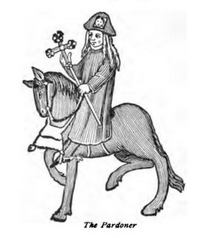
The Pardoner's Tale
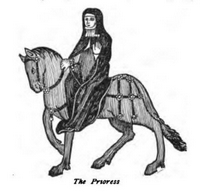
The Prioress's Tale
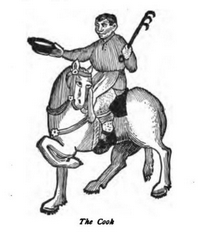
The Cook's Tale

The Monk's Tale

The Merchant's Tale
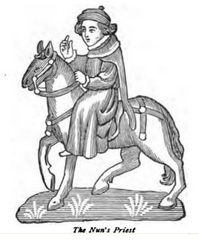
The Nun's Priest's Tale

The Franklin's Tale
Main Page | Site Updates | Privacy Policy | Site Map | XML Map | RSS | Contact | About
Canterbury Tales
